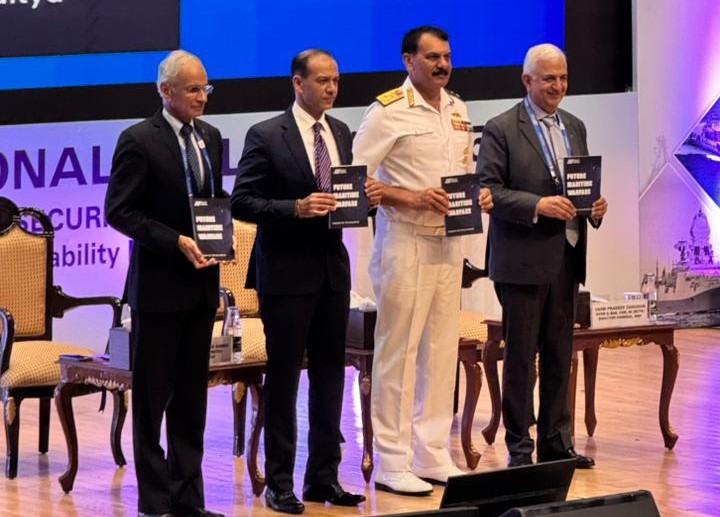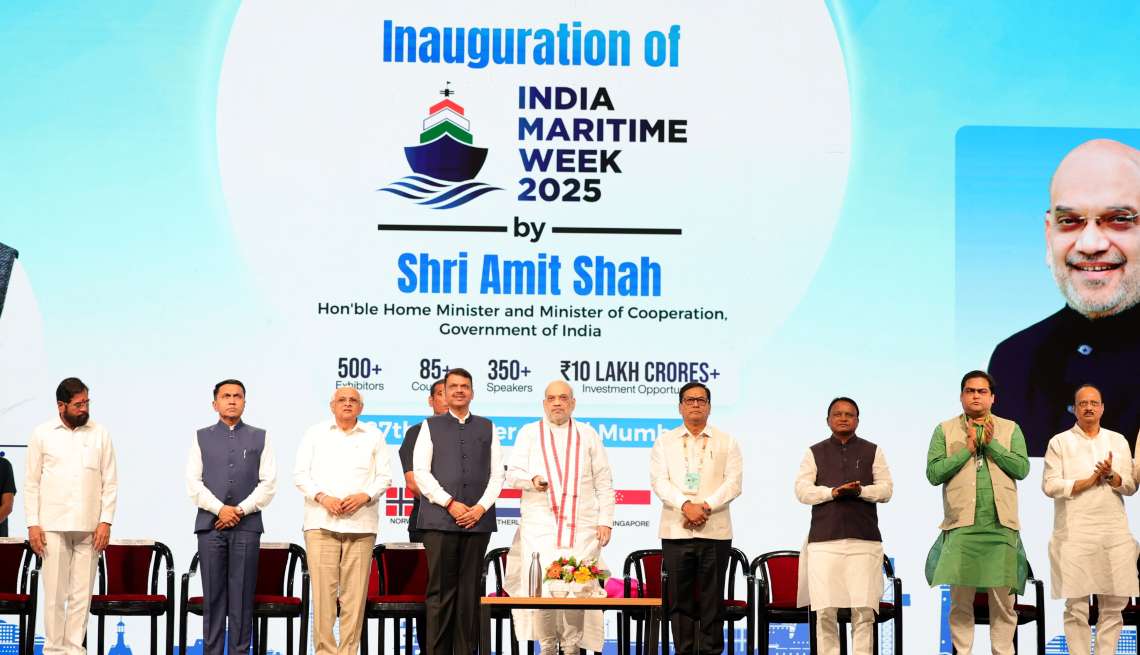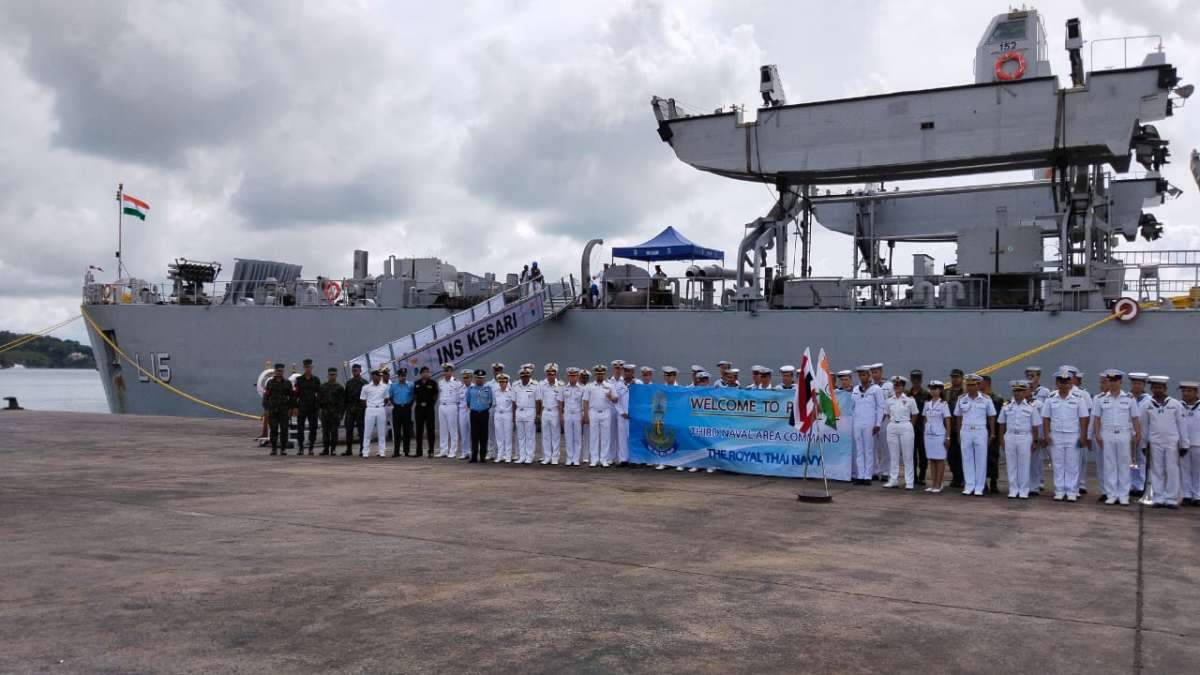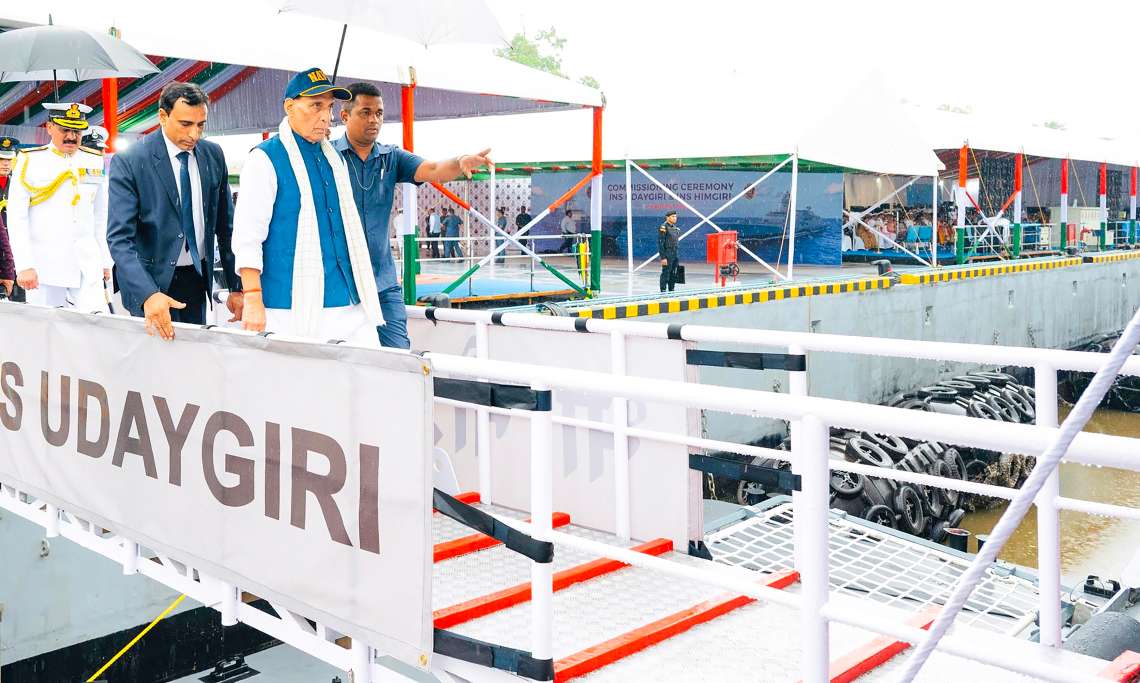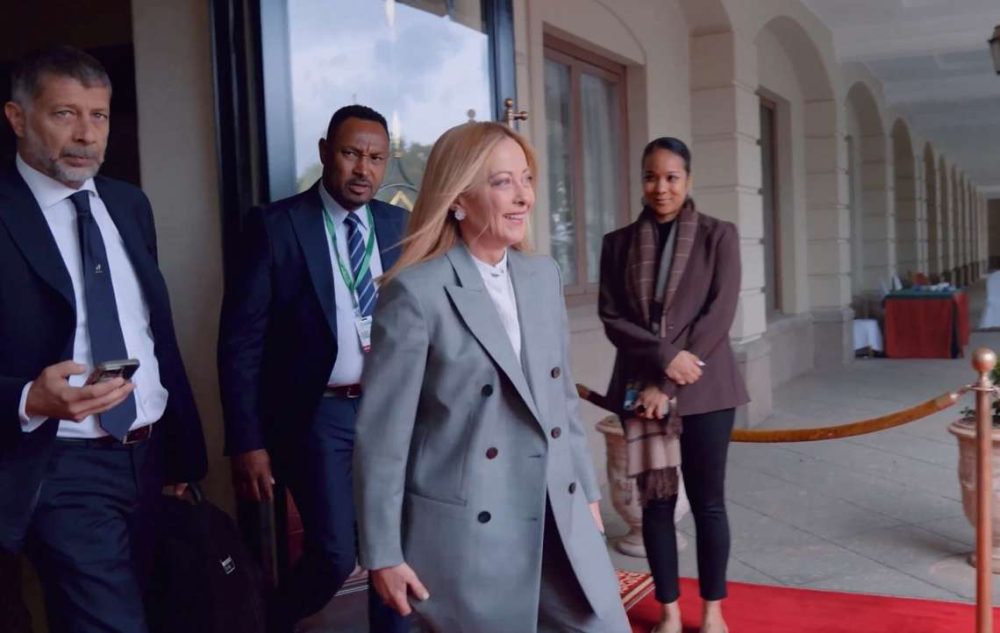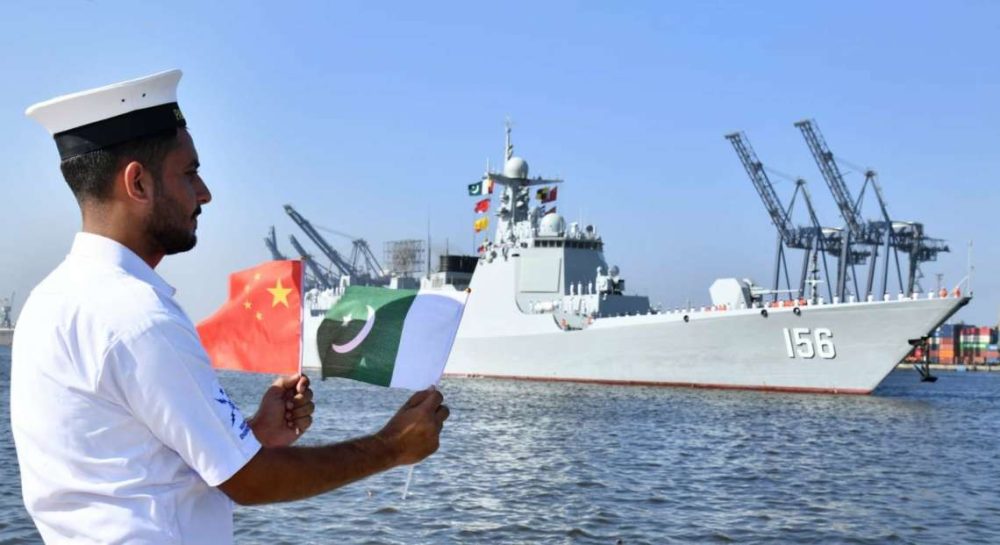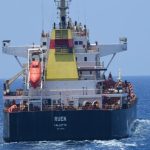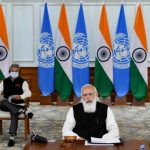Prime Minister’s vision of MAHASAGAR — Mutual and Holistic Advancement for Security and Growth Across Regions, marks the transition from SAGAR (Security and Growth for All in the Region) to a truly oceanic outlook — one that transcends geography and embraces shared responsibility, writes Commodore Ranjit B Rai (Retd)
As an officer who has seen the Indian Navy evolve from a coastal defence force to a credible blue-water institution, I find the Indo-Pacific Regional Dialogue (IPRD) 2025 not just another seminar, but a milestone in India’s maritime awakening. The seas, as Chief of the Naval Staff Admiral Dinesh K Tripathi reminded us this week, have been humanity’s oldest highways — carrying commerce, culture, and curiosity for centuries. They are also where India’s next leap as a maritime power will be tested.
A New Maritime Grammar
The Admiral’s keynote introduced a phrase that deserves attention — the “dynaxic challenge.” It captures precisely what those of us in uniform have long experienced: the sea is a living, shifting arena where commerce, crime, and conflict constantly converge.
He identified three currents that define this dynamism — commercial disruption, transnational turbulence, and technological acceleration — all of which are now reshaping how navies operate and nations trade.
Consider how a single chokepoint in the Red Sea has pushed up global insurance premiums and food prices, or how illegal fishing and narcotics smuggling threaten coastal livelihoods from the Arabian Sea to the Bay of Bengal. Add to this the spread of AI-driven surveillance and persistent cyber interference, and you have a maritime theatre far more complex than what any generation before has faced.
The Shift From Sea To Ocean
India’s response, embodied in the Prime Minister’s vision of MAHASAGAR — Mutual and Holistic Advancement for Security and Growth Across Regions, reflects both ambition and maturity. It marks the transition from SAGAR (Security and Growth for All in the Region) to a truly oceanic outlook — one that transcends geography and embraces shared responsibility.
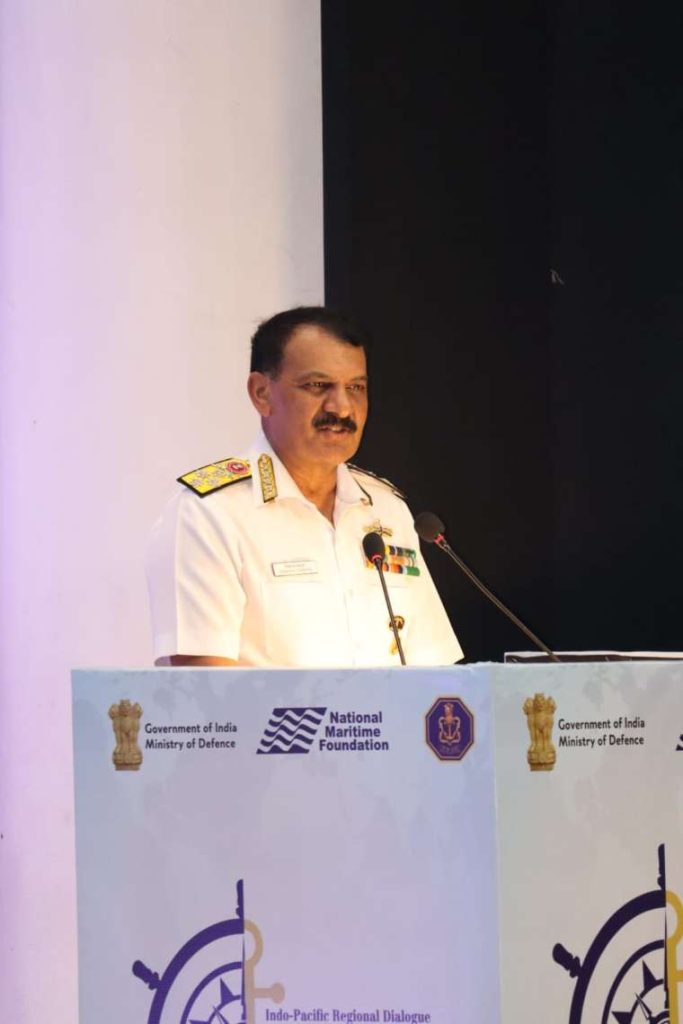
The Navy’s Information Fusion Centre–Indian Ocean Region (IFC-IOR) at Gurugram — now recognised by the International Maritime Organization as a voluntary reporting hub — is a practical example of this philosophy. From hosting 15 international liaison officers today to a planned 50 by 2028, it symbolises India’s quiet but sustained leadership in maritime domain awareness.
So too do exercises such as AIKEYME with nine African nations and the IOS SAGAR deployment, which saw mixed crews from across the region. These are not mere demonstrations of presence; they are statements of partnership, interoperability, and trust.
The Civilisational Compass
Former Naval Chief Admiral Karambir Singh aptly described India’s maritime approach as “a civilisational ethos turned strategy.” Our tradition of Vasudhaiva Kutumbakam — the world as one family — resonates deeply in the Indo-Pacific, a region where small islands and major powers alike are bound by shared vulnerabilities.
It is also a region shadowed by growing assertiveness and mistrust at sea. Maritime coercion — whether through unilateral fishing expeditions, territorial encroachments, or the militarisation of distant reefs — threatens the very stability that regional navies work to uphold. In such an environment, trust among responsible Indo-Pacific nations becomes the most strategic currency. It is this trust, built through transparency, information-sharing, and capacity partnerships, that can temper belligerence and ensure that freedom of the seas remains more than a slogan.
Equally compelling was Vice Admiral Pradeep Chauhan’s reminder that the Indo-Pacific must be seen “not as a strategy against someone but as a strategic geography.” India’s approach, therefore, differs from the bloc politics of old — it is inclusive, not exclusionary; stabilising, not confrontational.
From Dialogue To Delivery
The IPRD’s first day captured this spirit of convergence. The “Chaupal ki Charcha” brought together naval leaders and diplomats from Germany, France, BIMSTEC, and the Netherlands in an open conversation on cooperation, not contest. The release of Captain K S Vikramaditya’s book Future Maritime Warfare and the special edition of Maritime Affairs edited by Professor Christian Bueger provided intellectual ballast to these discussions.
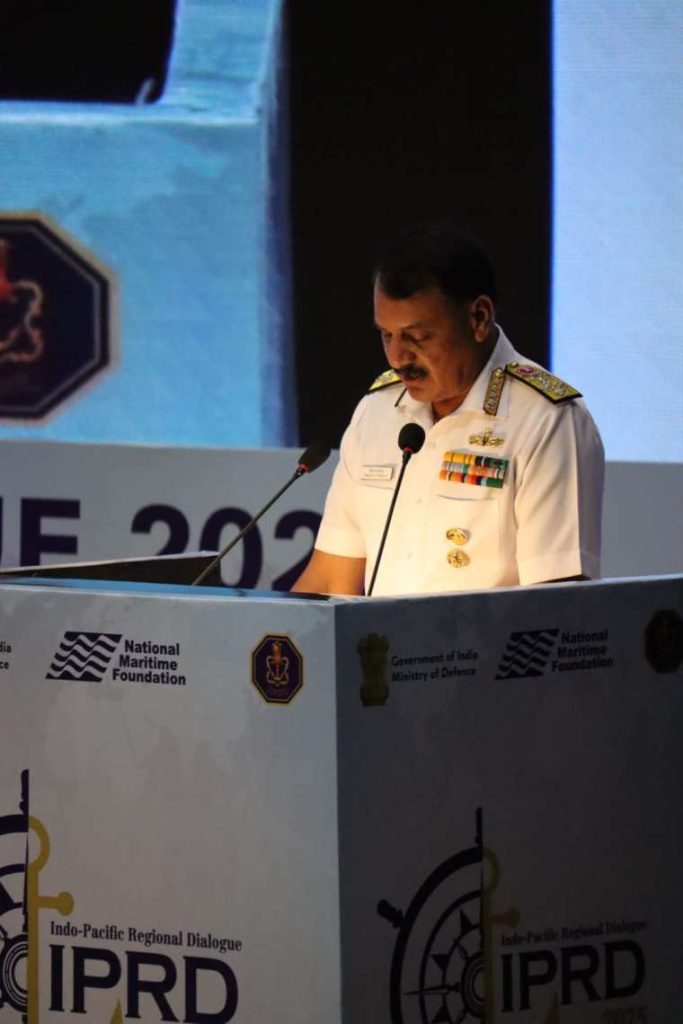
As someone who has worked in intelligence, operations, and later in the merchant marine sector, I see this dialogue as more than academic. It signals that India’s maritime conversation has matured — from reactive to proactive, from tactical to strategic, from slogans to structures.
The Voyage Ahead
With 40 speakers from 19 countries, IPRD 2025 reaffirmed what many of us in uniform have always believed: India’s destiny is inseparable from the sea. Our prosperity, our security, and even our diplomacy will depend increasingly on how effectively we manage the maritime commons.
Admiral Tripathi’s closing words captured that sense of urgency: “The Indo-Pacific is changing fast. Maritime-security challenges, climate change and supply-chain disruptions are reshaping the region — demanding fresh ideas, stronger partnerships and smarter strategies.”
The challenge before India’s maritime community — uniformed and civilian alike — is to convert these ideas into sustained capability, credible deterrence, and cooperative frameworks that endure political cycles.
India has reached a point where its maritime footprint must match its continental ambition. MAHASAGAR offers that framework — rooted in civilisational confidence, powered by cooperation, and guided by the belief that the seas connect far more than they divide.
About the Author:
Commodore Ranjit B Rai (Retd) is the author of The Indian Navy @75: Reminiscing the Voyage. A former Director Naval Intelligence and Director Naval Operations, he is an RNSC-qualified officer who also served as India Representative of Waterman Steam Ships (USA) and curated the New Delhi Maritime Museum. He writes extensively on maritime affairs and defence policy.


